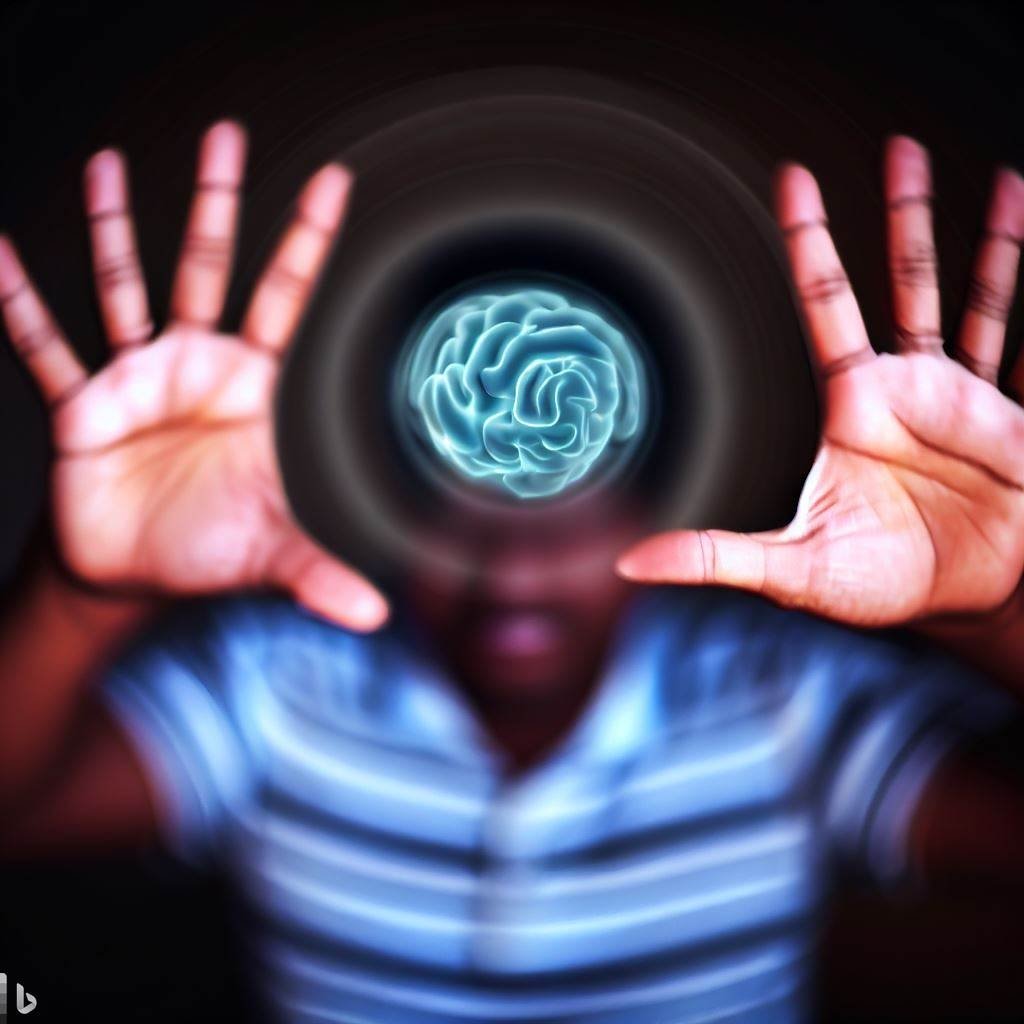Attention deficit hyperactivity disorder (ADHD) is a common condition that affects the ability to focus, control impulses, and manage time and tasks. It can cause problems in various aspects of life, such as school, work, and relationships. In this article, we will cover the following topics:
- What are the symptoms of ADHD?
- How is ADHD diagnosed?
- What are the causes and risk factors of ADHD?
- How is ADHD treated?
- What are some tips and resources for living with ADHD?

What are the symptoms of ADHD?
ADHD stands for attention deficit hyperactivity disorder, a condition that affects the ability to focus, control impulses, and manage time and tasks. Some common symptoms of ADHD are:
- Impulsiveness
- Disorganization and problems prioritizing
- Poor time management skills
- Problems focusing on a task
- Trouble multitasking
- Excessive activity or restlessness
- Poor planning

These symptoms can be categorized into two types of behavioral problems: inattentiveness (difficulty concentrating and focusing) and hyperactivity and impulsiveness1. Many people with ADHD have problems that fall into both these categories, but this is not always the case. For example, around 2 to 3 in 10 people with the condition have problems with concentrating and focusing, but not with hyperactivity or impulsiveness1. This form of ADHD is also known as attention deficit disorder (ADD). ADD can sometimes go unnoticed because the symptoms may be less obvious.
ADHD is more often diagnosed in boys than girls1. Girls are more likely to have symptoms of inattentiveness only, and are less likely to show disruptive behavior that makes ADHD symptoms more obvious1. This means girls who have ADHD may not always be diagnosed.

How is ADHD diagnosed?
There is no single test that can diagnose ADHD. The diagnosis is based on a combination of factors, such as:
- A detailed medical history, including any family history of ADHD or other mental health disorders
- A physical examination to rule out any medical conditions that may cause similar symptoms
- A psychological evaluation to assess the severity and impact of the symptoms on different areas of life
- A behavioral observation to see how the person acts in different settings and situations
- A standardized rating scale or questionnaire to measure the frequency and intensity of the symptoms
The diagnosis of ADHD follows certain criteria that are outlined in the Diagnostic and Statistical Manual of Mental Disorders (DSM-5), which is a guide used by mental health professionals2. According to the DSM-5, a person must have at least six symptoms of inattention or hyperactivity and impulsiveness that:
- Have been present for at least six months
- Are inappropriate for the person’s developmental level
- Cause significant impairment in social, academic, or occupational functioning
- Are not better explained by another mental disorder
The symptoms must also be present before the age of 122.




What are the causes and risk factors of ADHD?
The exact causes of ADHD are not fully understood, but research suggests that it may involve a combination of genetic, environmental, and developmental factors2. Some possible causes and risk factors of ADHD are:
- Family history: Having a parent or sibling with ADHD increases the likelihood of having the condition2.
- Brain structure and function: People with ADHD may have differences in the size, shape, or activity of certain brain regions that are involved in attention, impulse control, and executive functions2.
- Neurotransmitters: People with ADHD may have imbalances in the levels or functioning of certain brain chemicals that regulate mood, behavior, and cognition2.
- Prenatal exposure: Exposure to alcohol, tobacco, drugs, or toxins during pregnancy may affect the development of the brain and increase the risk of ADHD2.
- Premature birth or low birth weight: Being born too early or too small may also affect the brain development and increase the risk of ADHD2.
- Brain injury: Trauma or infection that damages the brain may cause or worsen the symptoms of ADHD2.

How is ADHD treated?
There is no cure for ADHD, but there are various treatments that can help manage the symptoms and improve the quality of life. The most common treatments for ADHD are:
- Medication: Stimulants (such as methylphenidate or amphetamine) are the most widely used medications for ADHD. They work by increasing the activity of certain neurotransmitters in the brain and enhancing the attention and focus. Non-stimulants (such as atomoxetine or guanfacine) are also available for people who do not respond well to stimulants or have side effects. Medications for ADHD are usually prescribed by a psychiatrist or a pediatrician and require regular monitoring and follow-up2.
- Psychotherapy: Counseling or therapy can help people with ADHD cope with their emotions, improve their self-esteem, and develop strategies to overcome their challenges. Cognitive behavioral therapy (CBT) is a type of psychotherapy that focuses on changing the negative thoughts and behaviors that may contribute to the symptoms of ADHD. Other types of psychotherapy that may be helpful are family therapy, social skills training, and behavioral therapy2.
- Lifestyle changes: Making some changes in the daily routine, diet, exercise, and sleep habits can also help reduce the symptoms of ADHD. Some examples are:
- Creating a structured schedule and sticking to it
- Using reminders, calendars, lists, and timers to stay organized
- Breaking down large tasks into smaller steps and setting deadlines
- Finding a quiet and distraction-free place to work or study
- Avoiding caffeine, alcohol, nicotine, and drugs
- Eating a balanced diet that includes protein, complex carbohydrates, fruits, and vegetables
- Getting enough physical activity and outdoor exposure
- Practicing relaxation techniques such as deep breathing, meditation, yoga, or mindfulness
- Getting enough sleep and following a regular bedtime routine




What are some tips and resources for living with ADHD?
Living with ADHD can be challenging, but it can also be rewarding. People with ADHD have many strengths and talents that can help them succeed in life. Some tips and resources for living with ADHD are:
- Seek support: Having a strong support network of family, friends, teachers, or professionals can make a big difference in coping with ADHD. Joining a support group or an online community can also provide valuable information, advice, and encouragement from people who understand what you are going through.
- Learn about ADHD: Educating yourself and others about ADHD can help you understand your condition better and reduce the stigma and misconceptions that may surround it. Reading books, articles, blogs, podcasts, or videos about ADHD can help you gain more insight and awareness about your symptoms, causes, treatments, and coping strategies.
- Focus on your strengths: People with ADHD have many positive qualities that can help them excel in various fields and activities. Some of these qualities are:
- Creativity: People with ADHD often have a vivid imagination and a unique perspective on things. They can come up with original ideas and solutions that others may not think of.
- Energy: People with ADHD often have a lot of enthusiasm and passion for what they do. They can be very motivated and driven when they are interested in something.
- Flexibility: People with ADHD often have the ability to adapt to changing situations and environments. They can be open-minded and willing to try new things.
- Curiosity: People with ADHD often have a thirst for knowledge and learning. They can be very inquisitive and eager to explore new topics and experiences.
- Celebrate your achievements: People with ADHD often face many challenges and difficulties in their lives. They may also struggle with low self-esteem or confidence due to their symptoms or negative feedback from others. It is important to acknowledge your accomplishments and successes, no matter how big or small they are. Reward yourself for your efforts and progress, and be proud of yourself for overcoming your obstacles.
Conclusion
ADHD is a common condition that affects the ability to focus, control impulses, and manage time and tasks. It can cause problems in various aspects of life, such as school, work, and relationships. However, it can also be managed with proper treatment, support, education, and lifestyle changes. People with ADHD have many strengths and talents that can help them achieve their goals and dreams.
If you think you or someone you know may have ADHD symptoms, you should consult a qualified mental health professional for diagnosis and treatment. You can also contact the following resources for more information or assistance:
- National Institute of Mental Health (NIMH): https://www.nimh.nih.gov/health/topics/attention-deficit-hyperactivity-disorder-adhd/index.shtml
- Children and Adults with Attention-Deficit/Hyperactivity Disorder (CHADD): https://chadd.org/
- Attention Deficit Disorder Association (ADDA): https://add.org/
- ADDitude Magazine: https://www.additudemag.com/



Here is a quick list of all the symptoms of ADHD for your reference:
- Impulsiveness
- Disorganization and problems prioritizing
- Poor time management skills
- Problems focusing on a task
- Trouble multitasking
- Excessive activity or restlessness
- Poor planning











Excellent blog here Also your website loads up very fast What web host are you using Can I get your affiliate link to your host I wish my web site loaded up as quickly as yours lol
I don’t think the title of your article matches the content lol. Just kidding, mainly because I had some doubts after reading the article.
Although I like your website, several of your postings need to have their spelling checked. Since many of them have numerous spelling mistakes, it’s challenging for me to be honest. Still, I will come back.
Wow, fantastic blog layout! How lengthy have you ever been blogging for?
you made blogging glance easy. The total look of your site is excellent,
let alone the content material! You can see similar
here dobry sklep
Simply desire to say your article is as surprising The clearness in your post is simply excellent and i could assume you are an expert on this subject Fine with your permission let me to grab your feed to keep up to date with forthcoming post Thanks a million and please carry on the gratifying work
Normally I do not read article on blogs however I would like to say that this writeup very forced me to try and do so Your writing style has been amazed me Thanks quite great post
Hi my loved one I wish to say that this post is amazing nice written and include approximately all vital infos Id like to peer more posts like this
you are in reality a just right webmaster The site loading velocity is incredible It seems that you are doing any unique trick In addition The contents are masterwork you have performed a wonderful task on this topic
Throughout the awesome pattern of things you get a B+ for effort and hard work. Where you confused me personally ended up being on all the facts. You know, it is said, details make or break the argument.. And it couldn’t be more true at this point. Having said that, allow me reveal to you just what did deliver the results. Your text can be highly persuasive which is most likely why I am taking the effort in order to opine. I do not make it a regular habit of doing that. Next, while I can notice the jumps in reason you come up with, I am not sure of how you appear to connect your ideas which in turn make the final result. For the moment I will yield to your point however wish in the near future you actually link your dots better.
I carry on listening to the reports lecture about receiving free online grant applications so I have been looking around for the top site to get one. Could you advise me please, where could i get some?
My brother suggested I might like this blog He was totally right This post actually made my day You can not imagine simply how much time I had spent for this info Thanks
Keep working ,terrific job!
superb post.Never knew this, regards for letting me know.
Perfectly pent content material, Really enjoyed looking through.